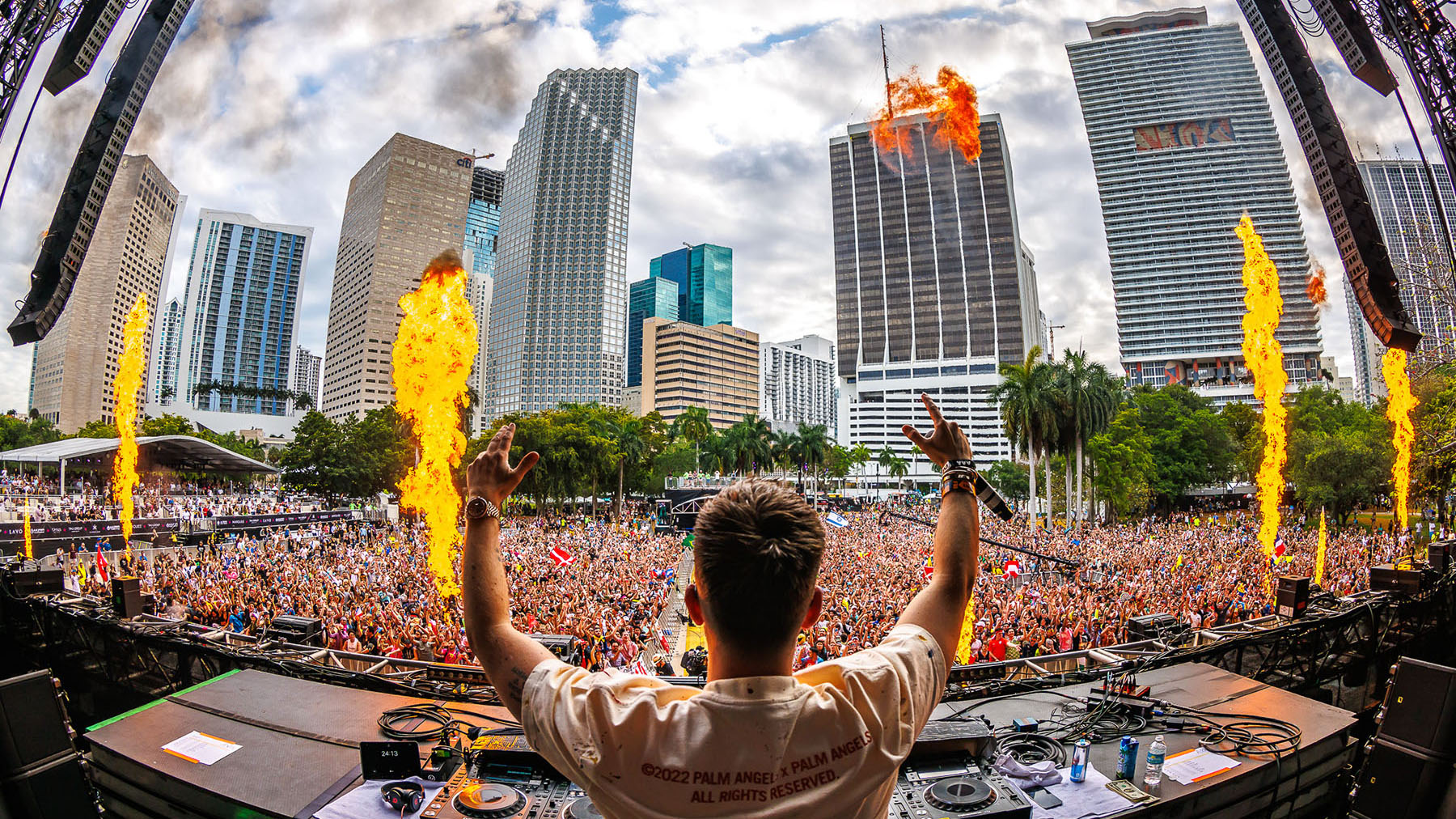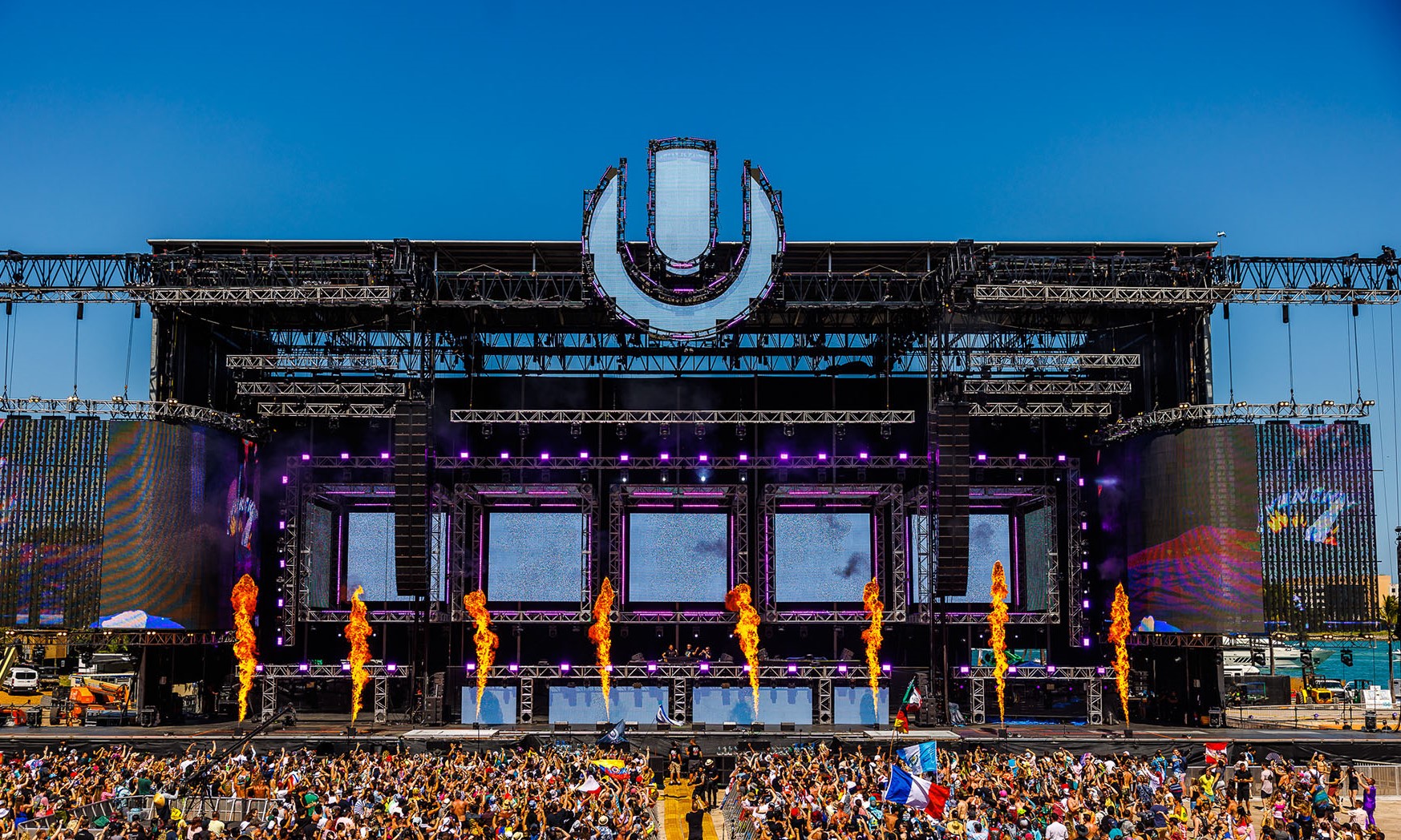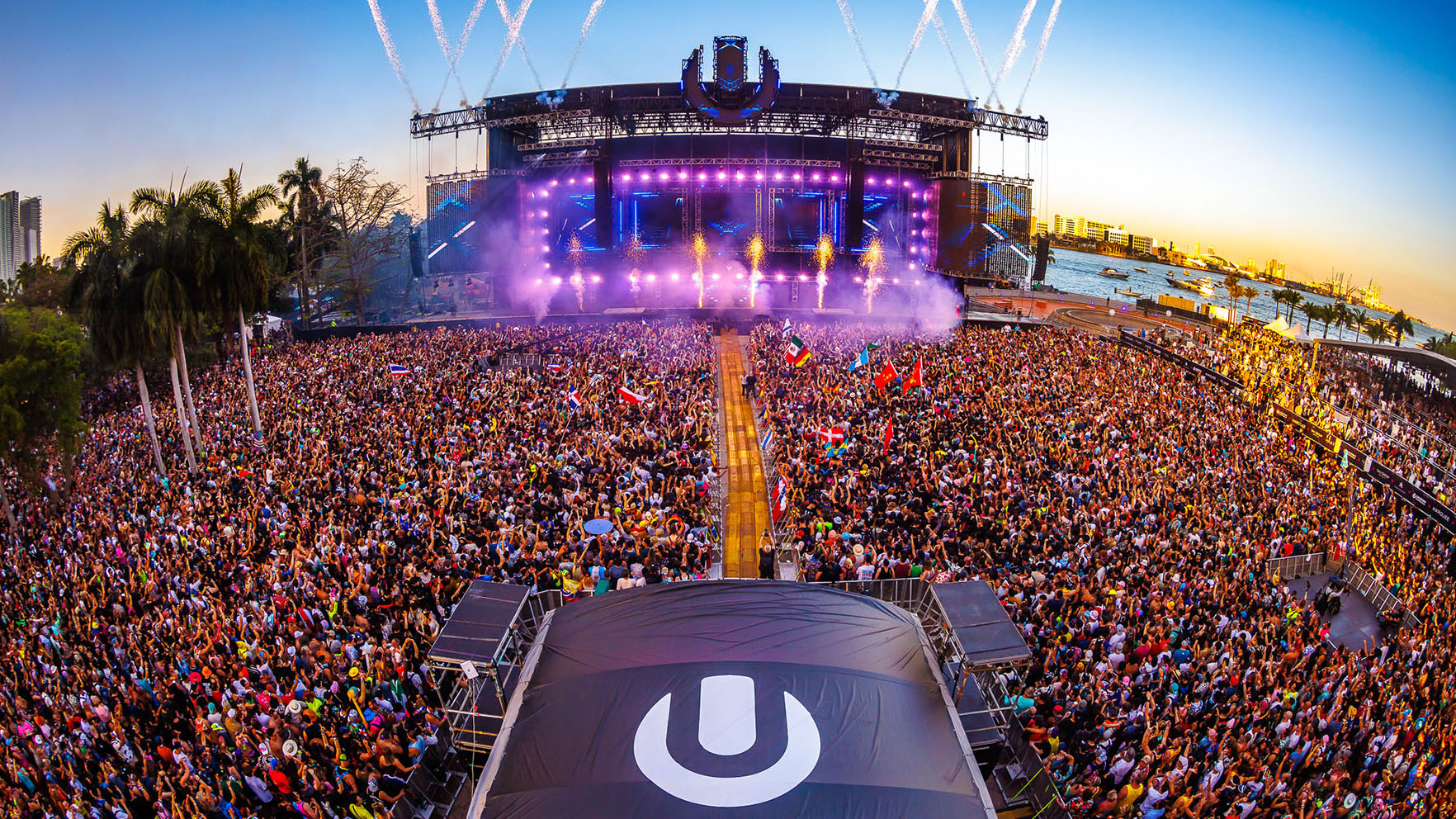For more than two decades, huge crowds have gathered at Bayfront Park in downtown Miami at the tail end of March for Ultra Music Festival, a massive three-day party with the world’s hottest and biggest EDM artists providing the live playlist. As the culmination of the annual Winter Music Conference and Miami Music Week, the festival has long flown L-Acoustics loudspeakers on a number of its stages. But this year marked the first time Unreal-Systems/AgorÀ USA was tasked with providing audio for the Main Stage, and the company deployed an enormous K1-based rig to keep the nightly crowd of 55,000 dancing.
“This is my 20th year of doing this festival as its audio provider, so that's kind of a milestone,” shared Unreal-Systems/AgorÀ USA “Captain” Andre Serafini, nodding to his history as the former owner and president of Beachsound. “We've always had L-Acoustics on several of the stages, including the Live Stage and Worldwide Stage, but this was the first year to have an L-Acoustics system on the Main Stage, and K1 delivered excellent results.”
[L-Acoustics L-ISA Immerses an Opera Audience in Open-Air Sound]

Hosting performances by such well-known names as Afrojack, Armin Van Buuren, David Guetta, DJ Snake, Illenium, Kygo, Marin Garrix, and Tiësto, this year’s Main Stage sported left and right main arrays of 16 K1 enclosures over four K2 downs, each backed by eight flown K1-SB subs, and adjacent out-fill arrays comprised a dozen K2 per side. Anchoring the substantial low-end that is a hallmark of the EDM genre was a line of 48 KS28 subs spanning the face of the stage, while four additional K2 spaced out on top of the subs delivered solid front-fill. Power was exclusively delivered by LA12X amplified controllers housed in LA-RAK II touring racks, and all signals were routed using the Milan-AVB protocol via P1 processors and LS10 switches. FOH and monitor mixes were provided on respective DiGiCo Quantum338 and SD10 consoles.
Onstage, 10 X15 HiQ stage monitors lined the stage lip, accompanied by left and right side-fills of four Kara over two SB28 subs each. In the DJ performance spaces, two left/right pairs of “Texas headphones”—each comprising four Kara over two SB18 subs—provided the monitoring solution that has now been generally considered “the standard” by the world’s top EDM artists.
[L-Acoustics Introduces New Global Sales Director Team]
This year, Joe Williams served as the FOH systems tech on the Main Stage and was duly impressed with the K1 setup. “The system threw 180 meters with no delays, no problem,” he said. “It performed extremely well, and all of the artists were super happy.”

“This year, the coverage from front to back was the best it’s ever been, plus it was the most ‘musical’ sounding," Serafini agreed. "And the amount of LF coming off of the K1 is impressive. That's something I'm not used to hearing at this site. But it was also nicely contained. With Ultra back in downtown Miami again, after two years off for COVID and two years at Virginia Key, the city was cracking down on noise bleed this year. The festival’s promoters hired a sound mitigation company—there were sensors all over the Main Stage site—but the L-Acoustics system just performed beautifully, even under the new, much stricter guidelines. It’s been a long time coming for K1 to be on this festival, and it was pretty spectacular to hear it there finally.”
[L-Acoustic Latest Update Provides Free Immersive Mixing on Headphones]
The Live Stage, the festival’s second-largest stage located in an amphitheater at Bayfront Park, has used L-Acoustics systems for many years, but 2022 also marked the first time K1 was flown there. Hosting performers like Alison Wonderland, KSHMR, Madeon, Oliver Tree, Pendulum, Slander, and Sofi Tucker, that stage sported main arrays of eight K1 over four K2, eight K2 per side as out-fills, 32 KS28 subs, and more managed by system tech James Tejada.
“I have deployed many L-Acoustics systems in the FPL Solar Amphitheater over the years, but this was my largest deployment at the venue to date,” Tejada noted. "The sub deployment is always a little tricky given that you must place the subs into an arced concrete pit that creates a natural delay arc—which must be corrected for a bit via time alignment to help get more consistent coverage over the audience area. But I was very pleased with the results and overall performance of the whole rig, as were all the guest engineers."
